Key Takeaways:
- Implementing GPS fleet tracking can bring considerable benefits to construction companies, including a positive ROI, enhanced productivity, maintenance improvements, and reduced fuel consumption.
- GPS fleet tracking solutions usually come with hardware and software fees, as well as potential installation and additional hidden costs that need to be taken into account.
- To determine which GPS fleet tracking solution is the right fit for your construction company, make sure to take into consideration your needs, priorities, and desired features.
In a world where GPS technology has become ubiquitous, it’s only natural to recognize its potential for construction, particularly concerning the whereabouts and security of your fleet.
For construction company owners and managers, staying on top of deliveries, optimizing routes, and safeguarding assets are non-negotiable priorities.
GPS fleet tracking emerges as the optimal solution for achieving these goals.
However, with numerous GPS tracking systems available, it’s natural to have questions and seek clarity.
Why is GPS fleet tracking necessary in the first place? What types of systems exist, and what are their associated costs? Which features should you prioritize?
We’re here to address these queries and guide you toward selecting the right system for your fleet tracking requirements.
Let’s dive into it.
In this article...
Why Does My Construction Company Need This Technology?
Picture this: you’re running a construction business, juggling multiple projects, tight deadlines, and a fleet of vehicles that seem to have a mind of their own.
How do you ensure everything runs smoothly and the machinery is where it needs to be, when it needs to be?
Enter GPS fleet tracking—a game-changer that offers more than just dots on a map.
Did you know that, according to Verizon Connect 2024 Fleet Technology Trends Report, 70% of fleet operators already using GPS tracking swear by its benefits?
And it’s not just hearsay: 41% of them report seeing a positive return on investment within a year.
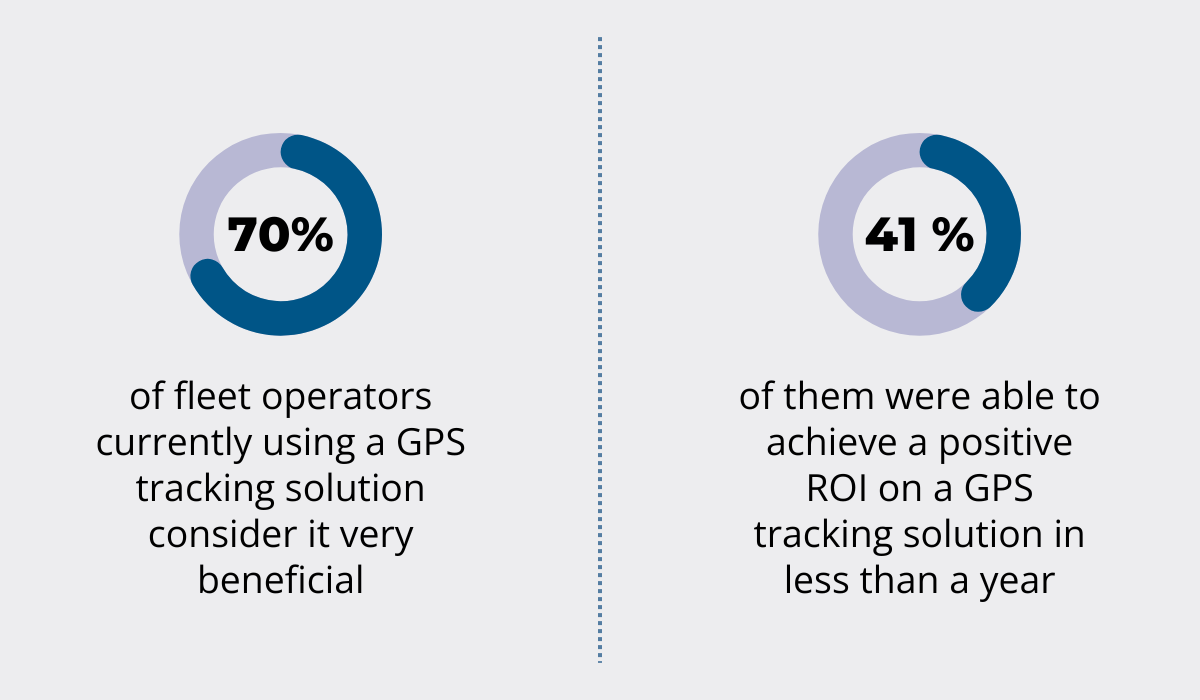
It’s no surprise, given that:
- for 55% of fleet operators, GPS fleet tracking enhances productivity,
- 49% note improvements in maintenance,
- 44% optimize routing with GPS tracking, and
- 35% report reduced fuel consumption.
That’s GPS fleet tracking in action, revolutionizing how construction companies operate.
But how does it work, you ask? It’s simple, yet powerful.
GPS trackers that you set up in your vehicles give you real-time visibility into your fleet’s activities and driving behaviors.
It’s like having a virtual eye on every vehicle, helping you monitor locations, plan optimal routes, and tackle inefficiencies head-on.
And since these GPS trackers also record vehicle speed, engine hours, acceleration, hard braking, and more, with such telematics data at your fingertips, you can streamline vehicle management and ensure driver safety.
So, it is not surprising that as many as 74% of fleet managers think GPS tracking is very or extremely effective in improving safety.
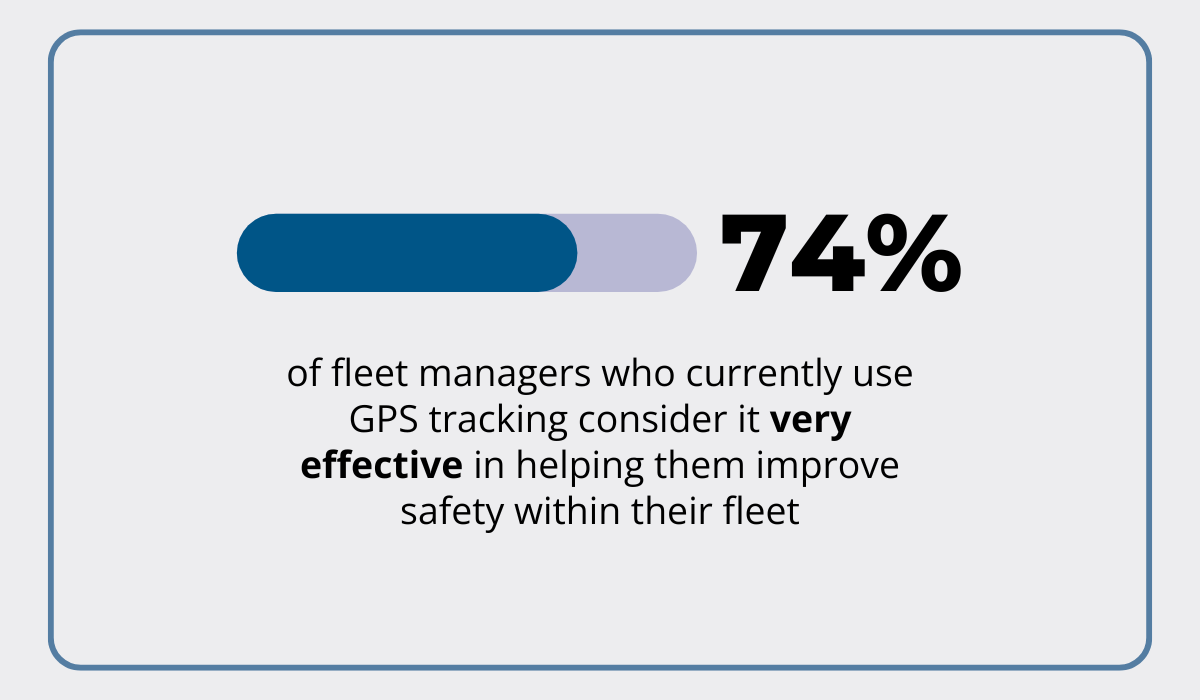
But the benefits of GPS fleet tracking go even beyond these already significant advantages.
For starters, let’s talk about peace of mind. Have you ever had false accusations thrown your way?
Papalia, a home service company, can relate.
However, thanks to GPS tracking, they debunked a hit-and-run claim in minutes:
“We had a random person call in to say one of our trucks did a hit-and-run. I immediately ran a report and found we did not have any trucks in that area during the time of the ‘accident,’ and the caller hung up.”
As you can see, GPS monitoring prevents false accusations, but also mitigates associated costs and reputational damage.
Then, there is also the issue of construction theft.
It’s a real concern, but not an insurmountable one.
According to Willy Schlacks of EquipmentShare, telematics, including GPS fleet tracking, is a game-changer in theft prevention and asset recovery:
“Theft is a huge problem in the industry, and recovery of assets, even if they’re covered by insurance, is so important especially with the growing supply chain issues. Replacing stolen assets isn’t always immediately possible, and that cuts into revenue—telematics can both help reduce the likelihood of theft and help with recovery if it does happen.”
In essence, GPS fleet tracking ensures you always know the whereabouts of your fleet and assets.
Even in the event of theft, you can monitor their location and aid in swift recovery.
Take GoCodes Asset Tracking, for instance.
With our GPS tracking devices, you get minute-by-minute updates that show exactly where your equipment is, even when it’s on the move.
That way, you can keep tabs on your valuable equipment and vehicles around the clock.
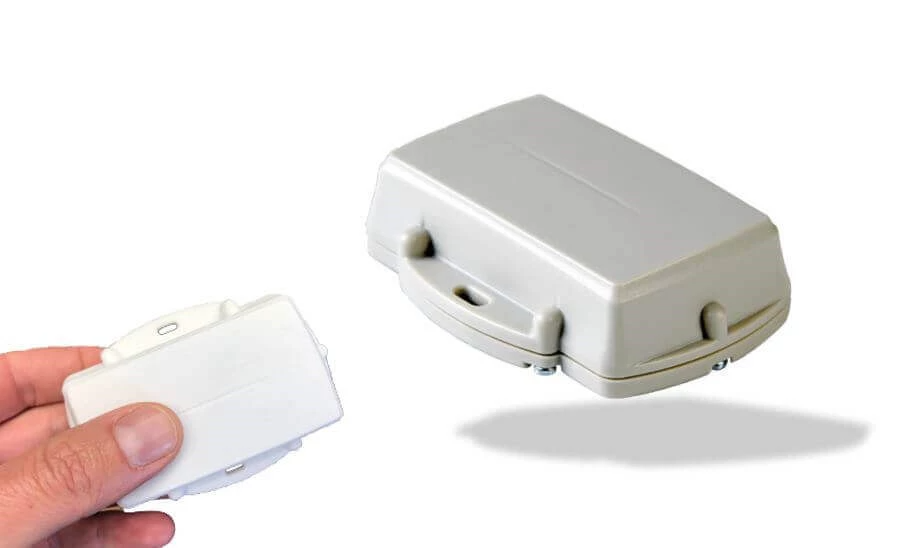
And the best part?
GoCodes Asset Tracking allows you to set up geofences around job sites.
In other words, you can define safe zones on a digital map and receive instant alerts if your fleet moves beyond those borders.
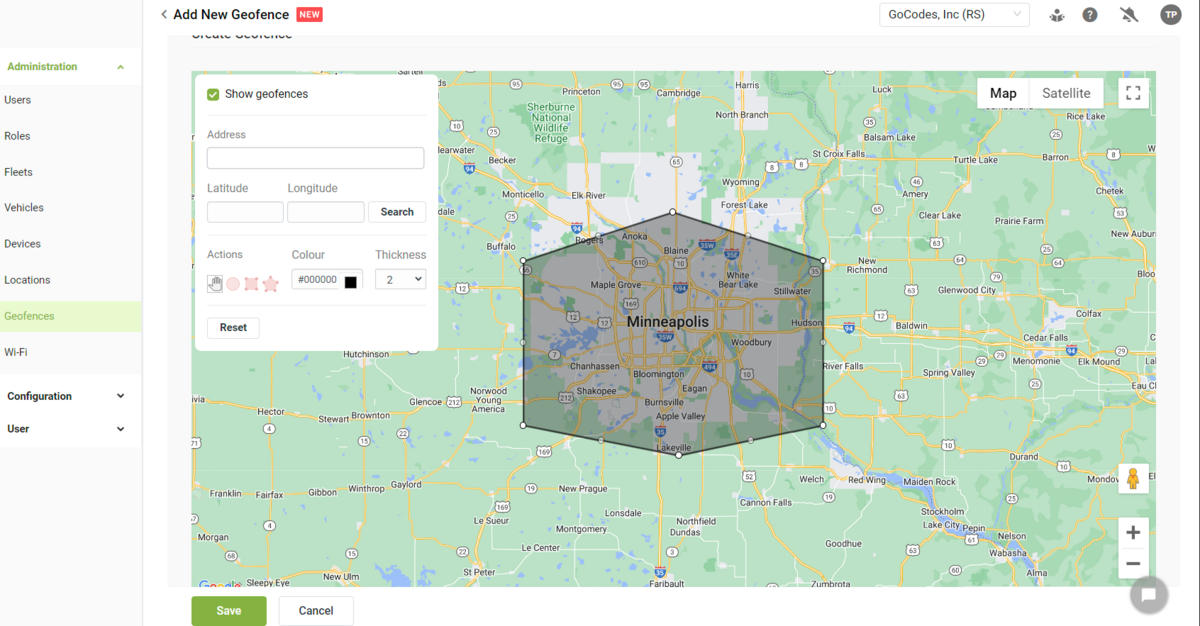
Take Cable East, a telecommunications construction company based in northeast Georgia, for example.
They saved a whopping $2.5 million through equipment recovery, thanks to geofencing and such immediate notifications and alerts.
So, if you’ve ever doubted whether you need GPS fleet tracking, doubt no more.
The myriad of benefits attest that investing in such a system is prudent for your construction company.
After all, your company deserves the best—and with GPS fleet tracking, the best is within reach.
What Are the Costs Associated with GPS Fleet Tracking?
It’s completely natural to wonder about the financial side of things when implementing new technology into your processes.
So, let’s break it down together.
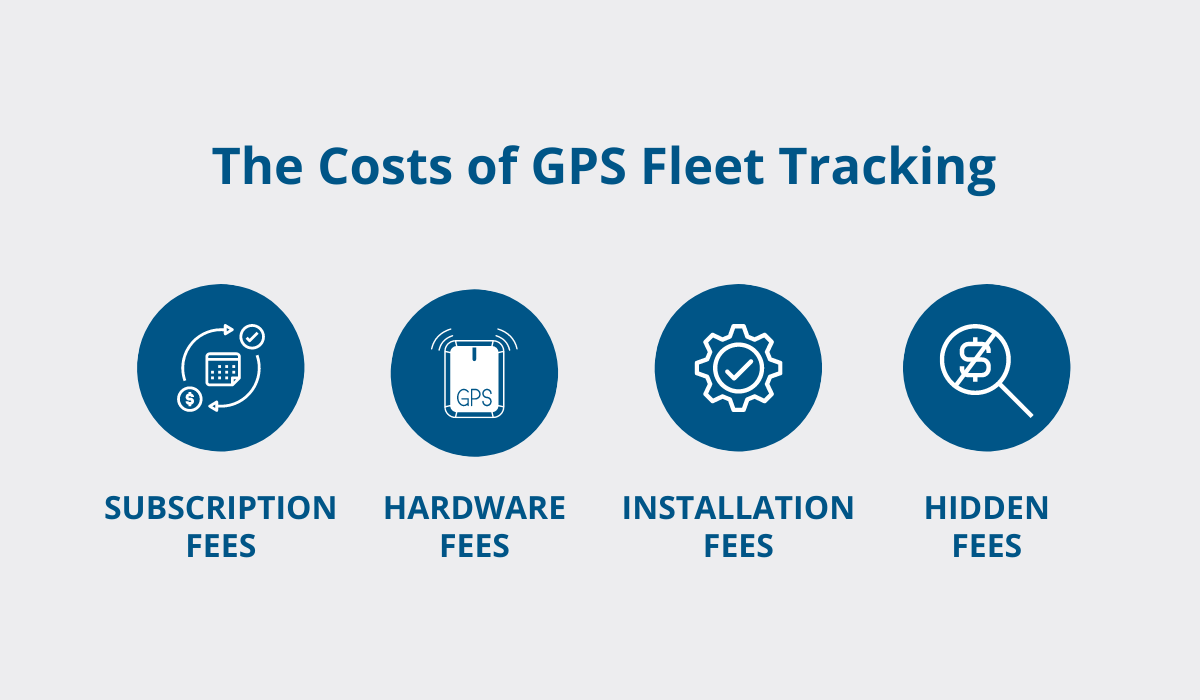
To begin, let’s outline what makes up a GPS fleet tracking system: there’s the software solution, such as fleet management software, and then there’s the hardware—those physical trackers affixed to your vehicles.
Now, let’s talk numbers—what can you expect in terms of costs?
First and foremost, there’s the monthly (or annual) subscription fee charged by software providers.
Typically, it’s a subscription fee per vehicle, per month.
So, for instance, if the fee is $20 per vehicle per month and you have a fleet of 20 vehicles, that adds up to $400 per month.
This fee can vary depending on the features you require and the length of the contract.
Opting for a longer contract may result in lower monthly fees, albeit with a commitment for a predetermined period.
Next, there’s the hardware fee for the physical trackers.
This can either be an upfront payment, or it can be included in the monthly subscription.
And let’s not overlook installation costs.
Depending on the complexity of the system, professional assistance may be necessary, incurring additional mechanics fees.
On top of that, consider hidden costs.
Some software providers, for example, charge extra support fees.
Moreover, if your chosen system requires extensive installation, factor in the downtime for your vehicles, potentially resulting in revenue loss.
When you tally up these costs, it’s understandable if you’re taken aback.
However, despite the initial investment, the benefits of GPS fleet tracking are substantial, as previously discussed.
Think increased productivity, optimized routes, streamlined maintenance, and reduced fuel consumption.
Plus, the peace of mind and enhanced security it offers are invaluable, particularly in the construction industry.
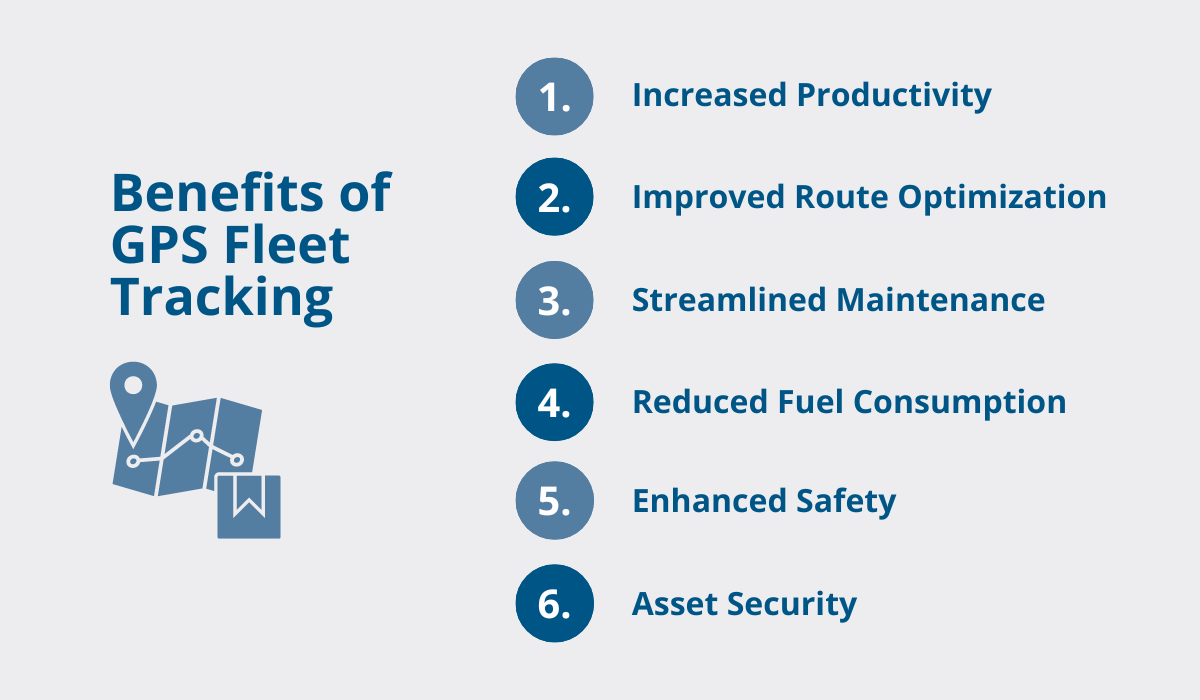
But don’t rush into any decisions just yet.
Before committing, take the time to identify the specific features you require and your overarching objectives for implementing GPS fleet tracking systems.
Armed with this knowledge, conduct thorough research on potential providers to ensure they align with your needs.
Lastly, make the most of any free trials and demos offered by providers.
It’s an opportunity to assess the functionality and performance of different systems before making a commitment.
What Should I Look For In a GPS Fleet Tracking Solution?
When it comes to selecting a GPS fleet tracking solution for your construction business, it’s essential to choose wisely.
Not all GPS solutions are created equal, and finding the right fit will require you to carefully consider your specific needs and priorities.
So, let’s break it down into key factors to consider.
First and foremost, ask yourself some essential questions:
- What do you want the system to help you with?
- Are you mainly concerned with real-time tracking to monitor your fleet’s whereabouts, or do you also need an intuitive interface for easy data collection and reporting?
- How much customization do you require in tracking parameters, reporting formats, and alerts?
- Is the solution scalable enough to accommodate the growth of your fleet and evolving business needs?
- What data security measures does the solution offer to protect sensitive fleet and operational information?
- How user-friendly is the platform for administrators and end-users, and what training resources are available?
- Does the solution offer mobile accessibility for on-the-go fleet monitoring via smartphones or tablets?
Once you’ve outlined your goals, let’s talk features.
While your specific needs will guide your choices, there are some essential features that every reliable GPS fleet tracking system should offer.
Look for a solution that provides:
- Real-time tracking capabilities for precise fleet monitoring.
- An easy-to-use interface to ensure seamless navigation for you and your team.
- Streamlined data collection and reporting features to save time and effort.
- Integration capabilities with other fleet management systems, such as vehicle maintenance software or dispatching tools, for enhanced efficiency.
- Reliability and comprehensive support from the provider, including unlimited phone, chat, and email support, as well as access to a robust help center featuring videos and tutorials.
In conclusion, selecting the right GPS fleet tracking solution requires carefully considering your needs, priorities, and desired features.
At the end of the day, it’s about finding a software provider who understands your requirements and is committed to helping you succeed in managing your fleet effectively.
What Types of GPS Fleet Tracking Systems Are There?
Before we conclude, let’s explore the different types of GPS fleet tracking systems, so you can understand which one suits your needs best.
First up, we have hard-wired systems.
These are installed directly into a vehicle’s electrical system, and provide continuous, real-time satellite-based tracking of the vehicle’s location, speed, and other parameters.
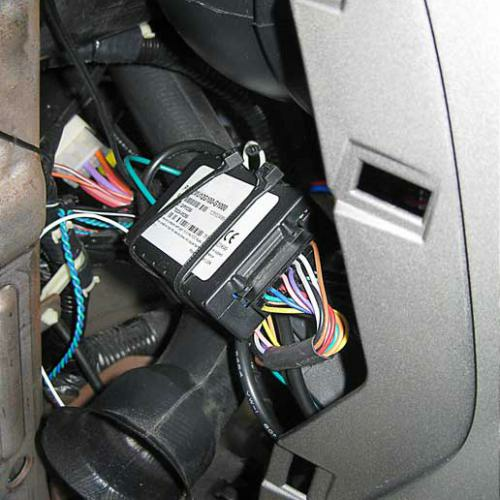
While they offer reliability and robustness, they do require professional installation, which can be a bit pricey and time-consuming.
On the flip side, we have plug-and-play systems.
These offer a more flexible and easy-to-install alternative to hard-wired systems.
With a portable tracking device that plugs into the vehicle’s OBD-II port or other diagnostic port, they quickly begin transmitting location and data to the fleet management software.
They’re perfect for fleets that need rapid deployment or device flexibility between vehicles.
Now, let’s talk about the variations within plug-and-play systems.
First, we have app-based systems.
These use mobile applications installed on smartphones or tablets to track vehicle location and other data.
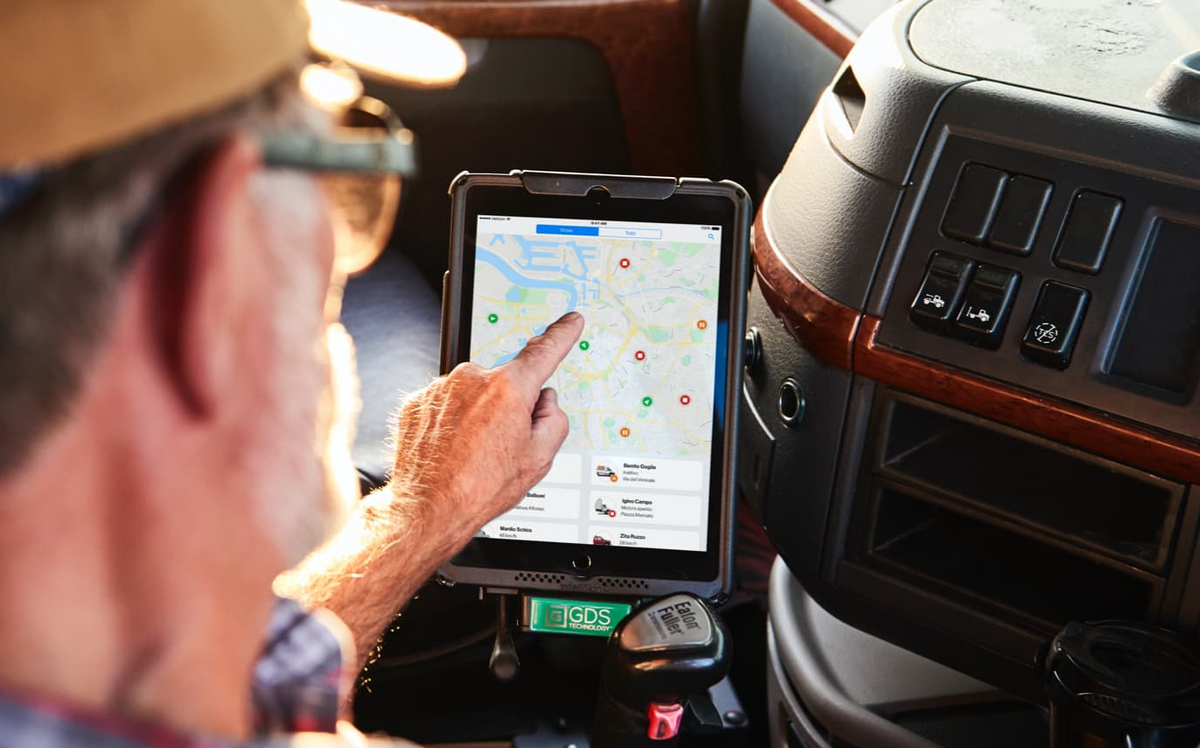
While they’re convenient and cost-effective, they may lack some advanced features and reliability compared to hardware solutions, and they can drain your mobile device’s battery and data.
On the other hand, we have satellite-based systems.
They use satellite communication networks to transmit tracking data from remote or off-grid locations.
They’re ideal for fleets operating in areas with limited cellular coverage, such as remote construction sites or rural areas.
However, they might come with a higher price tag compared to cellular-based solutions.
Lastly, there are asset trackers.
While not specifically designed for tracking vehicles, they monitor the location of valuable assets like machinery and equipment.
When integrated with GPS fleet tracking systems, they provide additional visibility into non-vehicular assets and, as such, enhance your overall fleet management.
Our GoCodes Asset Tracking, for example, offers both asset tracking and GPS fleet tracking capabilities, along with features like geofencing.
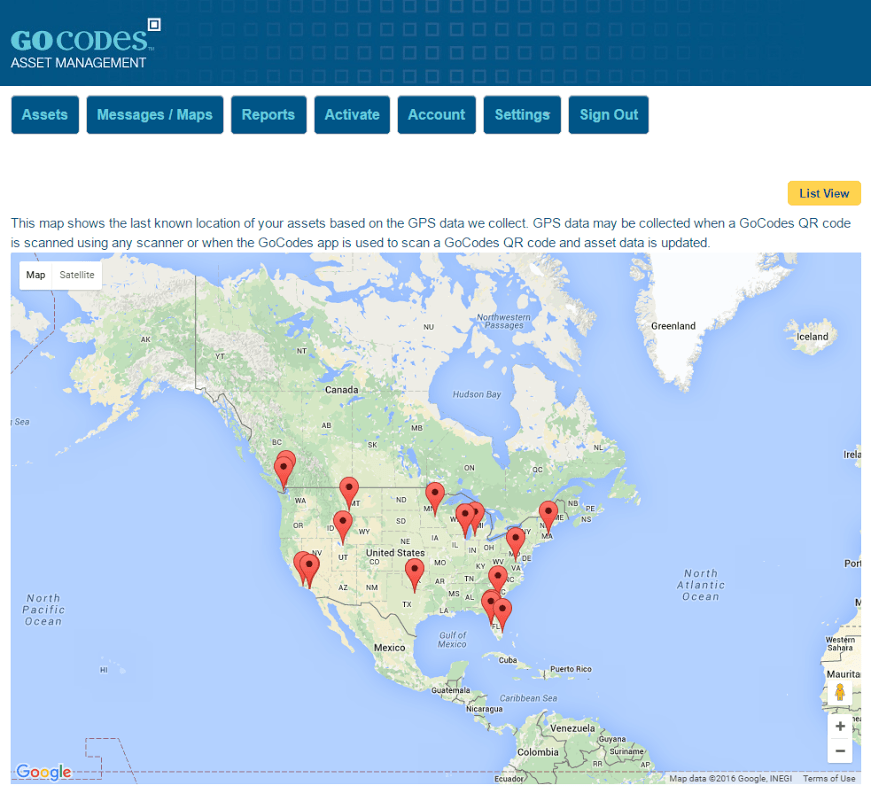
With our all-in-one solution, managing your assets and vehicles becomes easier and more cost-effective.
Plus, it’s user-friendly, so you can focus on running your business smoothly.
Conclusion
In wrapping up our exploration of GPS fleet tracking, it’s clear:
This technology is a game-changer for construction companies.
By now, you’ve seen how GPS tracking offers more than just dots on a map—it’s about boosting productivity, enhancing security, and cutting costs where it counts.
Whether it’s the hard-wired reliability or the plug-and-play flexibility, there’s a solution tailored to your needs.
So, as you venture forward, armed with knowledge of types, costs, and features, remember:
GPS fleet tracking isn’t just about finding your assets on the map—it’s about forging a path to success in the construction industry by optimizing your overall fleet management, preventing theft, reducing costs, and bolstering safety.





